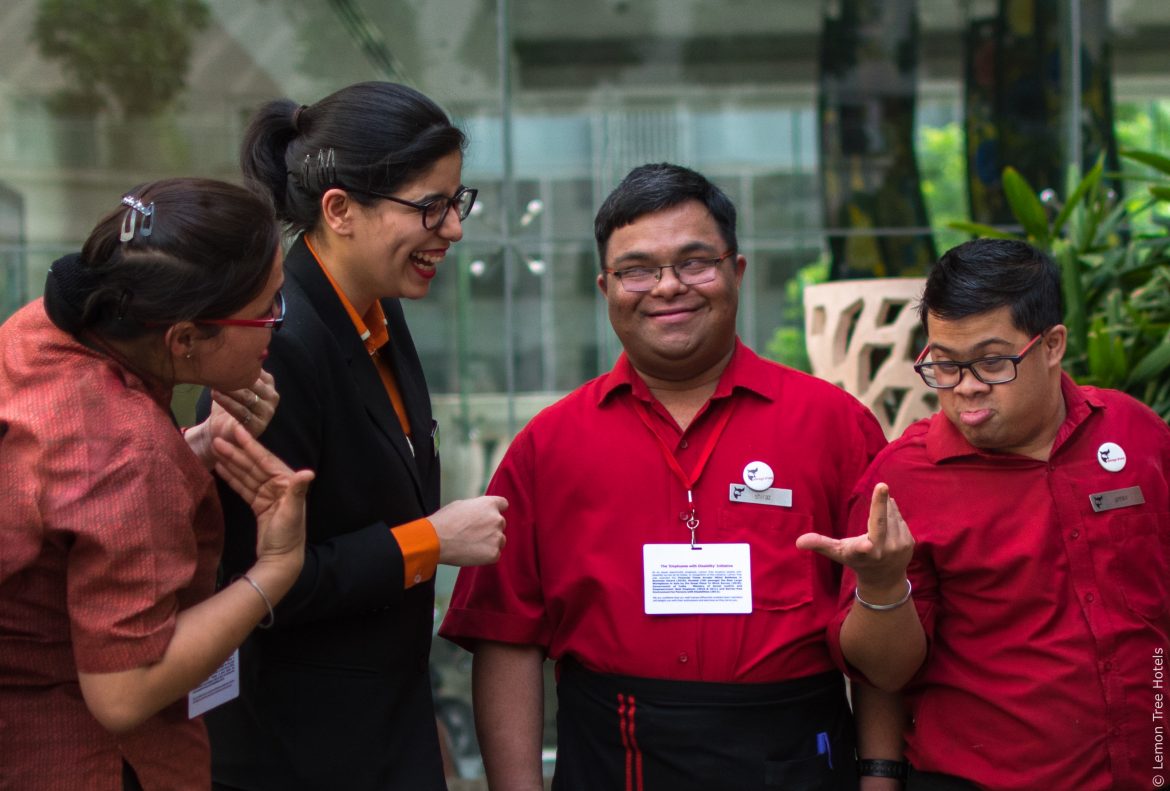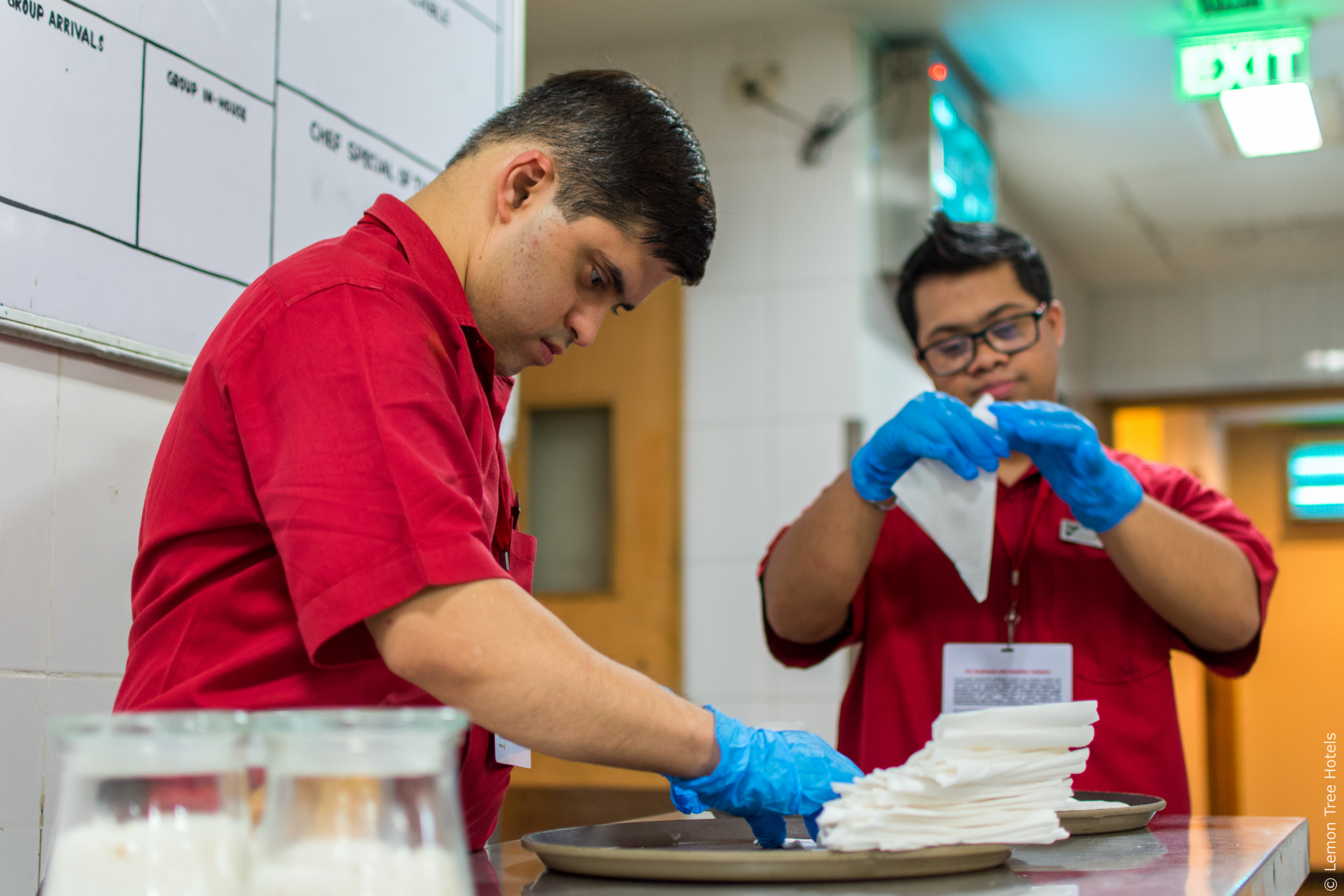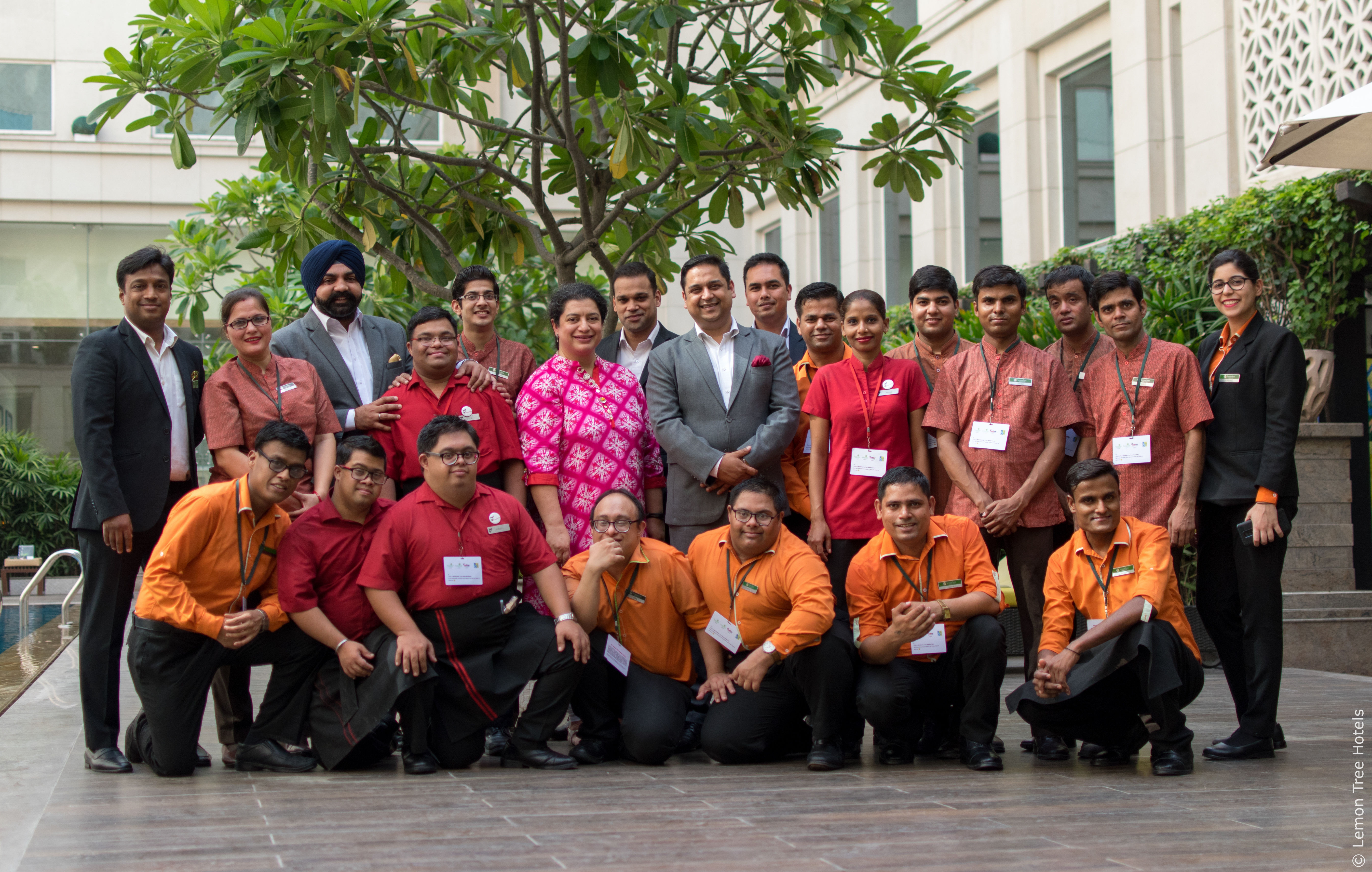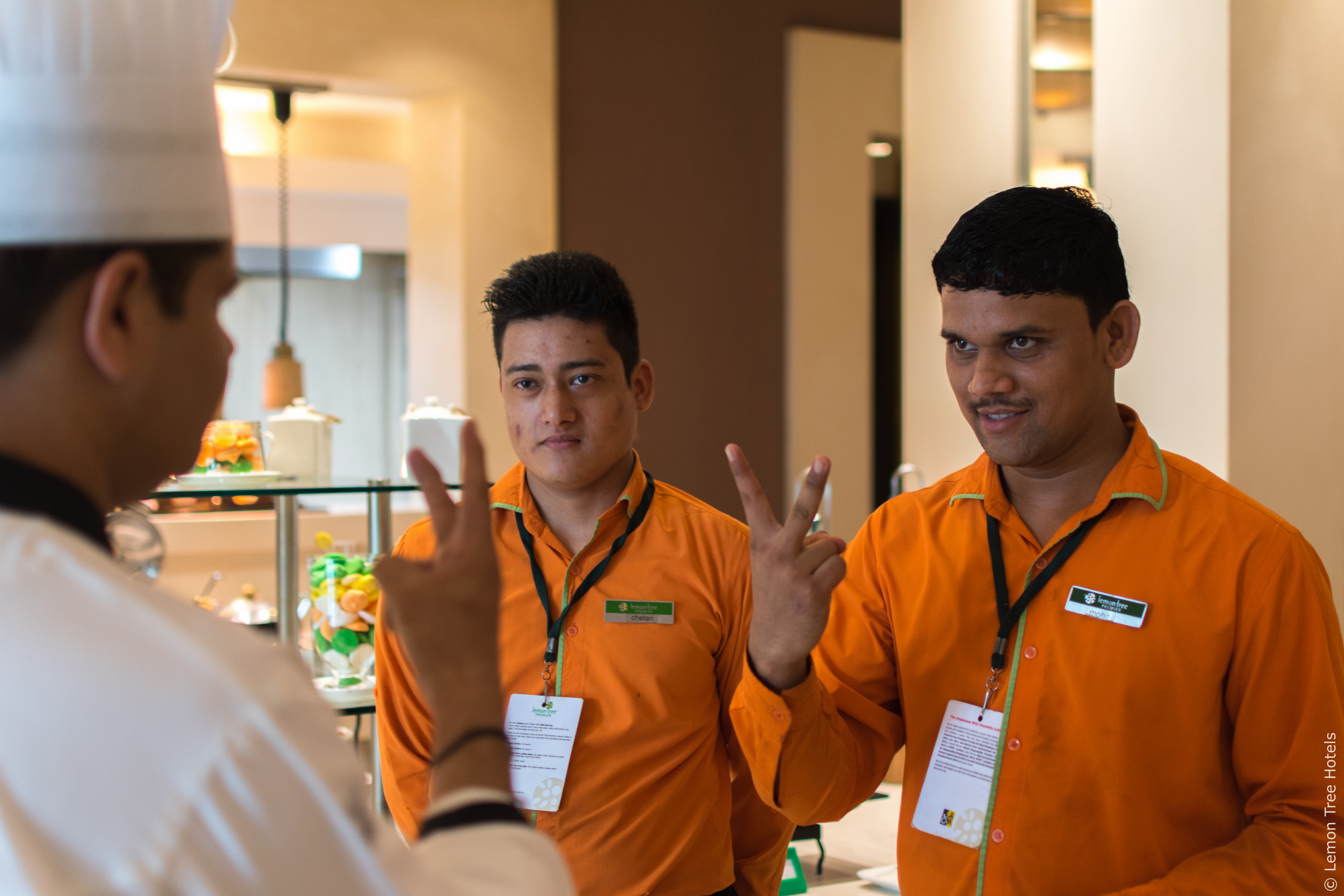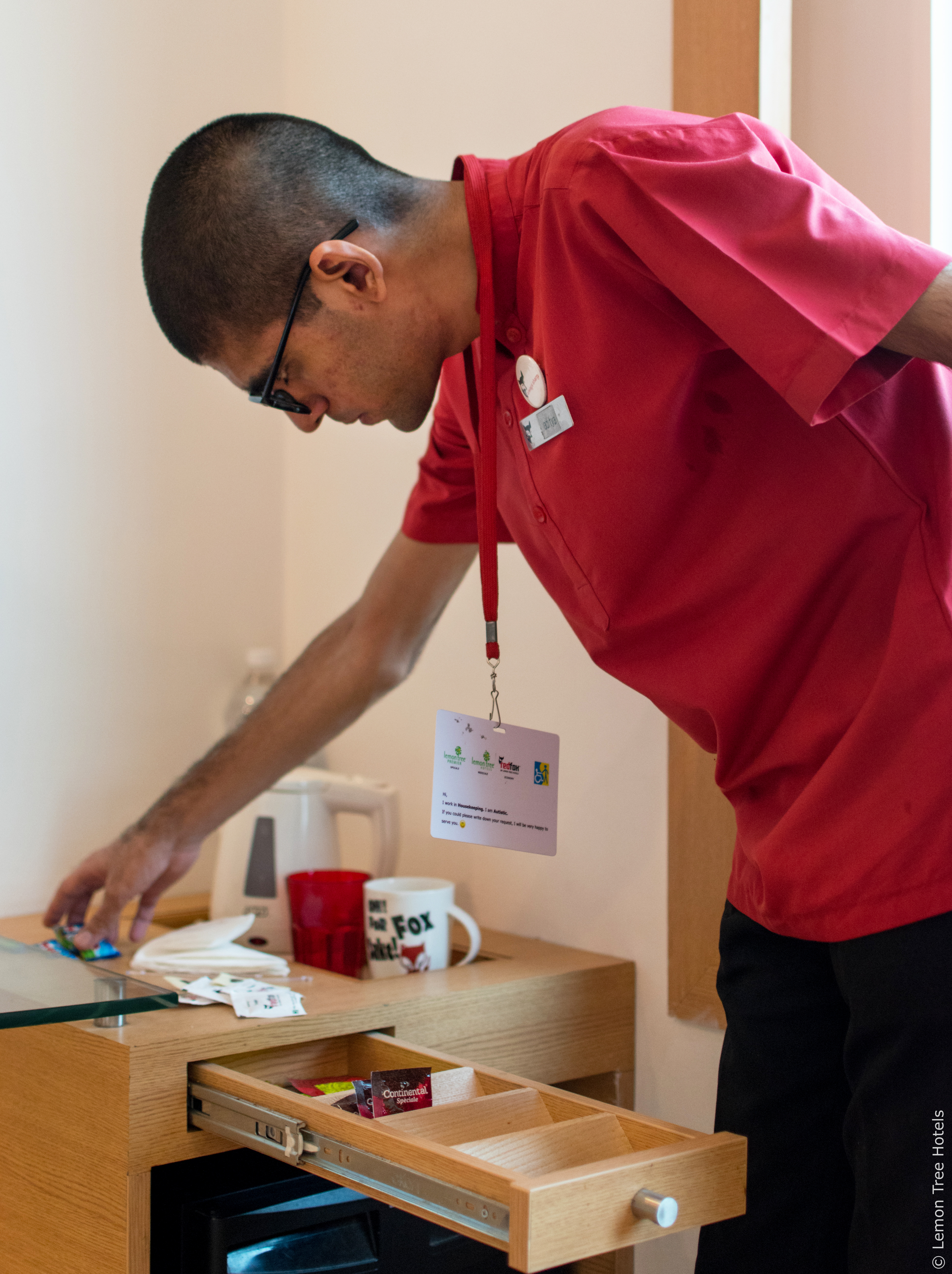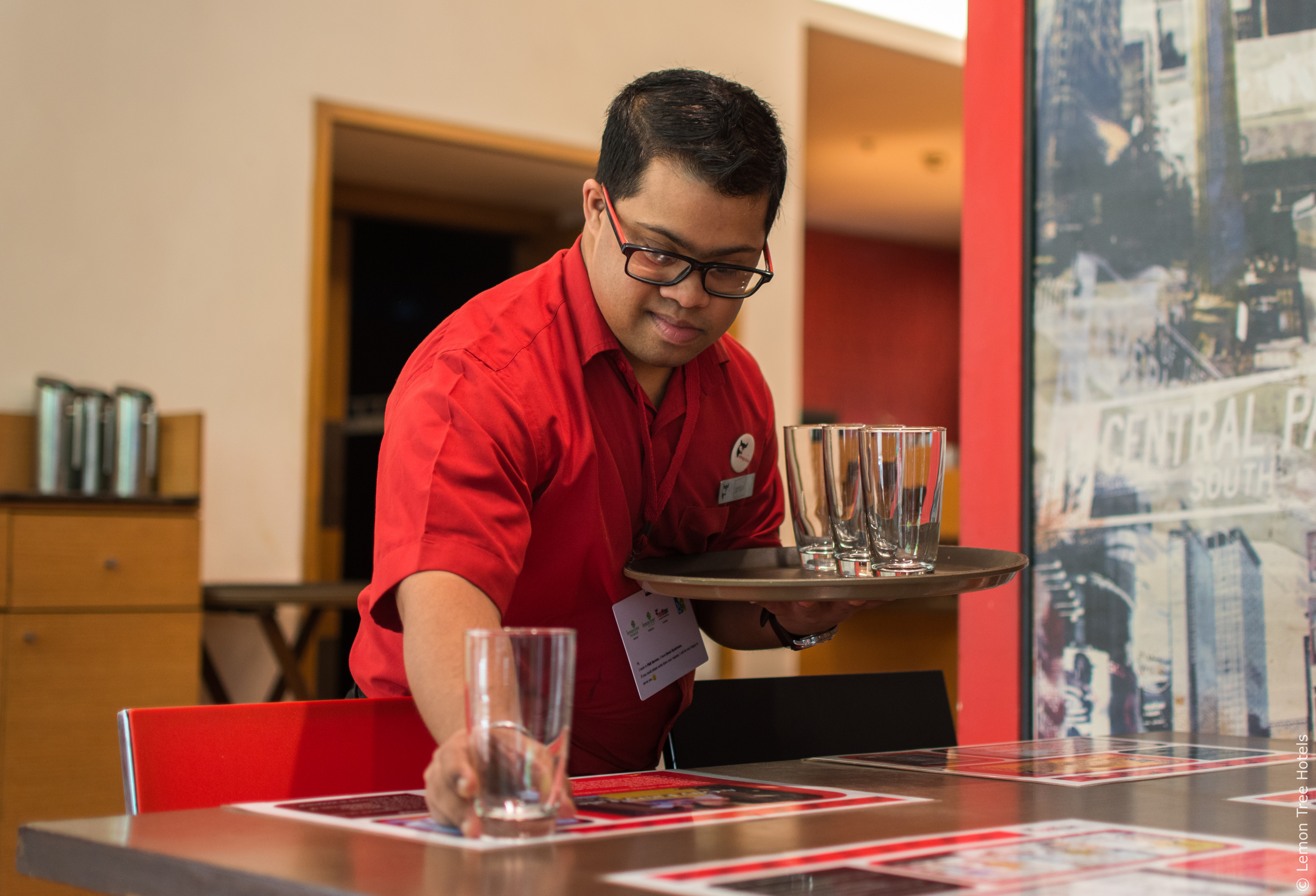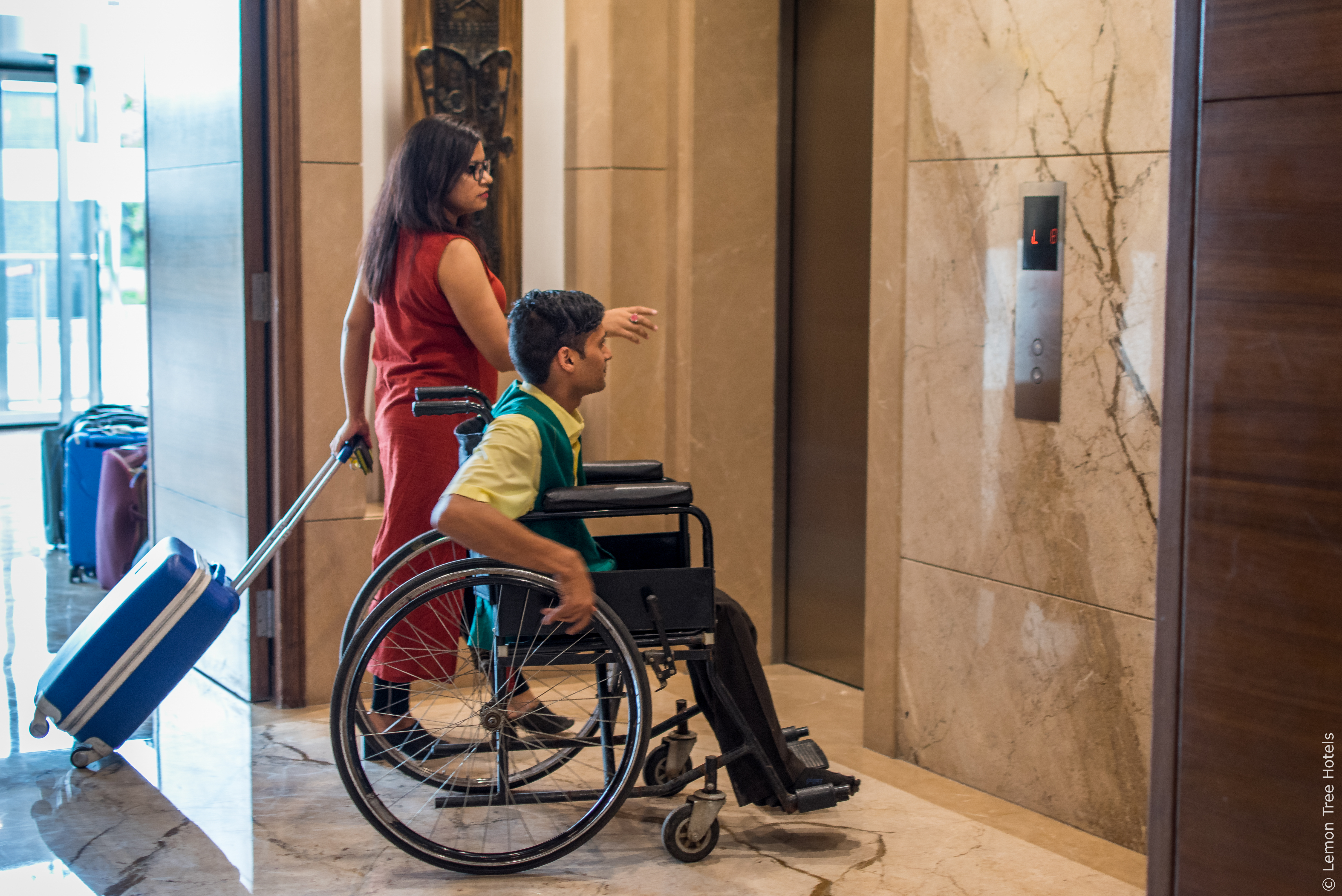This Indian hospitality group is taking its Inclusion Programme to audacious levels, employing more than 600 persons who are differently-abled in every aspect of hotel life. Here’s what you can learn from them.
First, let’s be clear. It’s DIFFERENTLY ABLED, not disabled. Second, EMPATHY, not sympathy, can win you a loyal talent pool that the world has shunned for too long. Here is an overview of the workings of Lemon Tree Hotels’ flagship Inclusion Programme for persons with disabilities.
Walk into any of its 52 properties nationwide and you may be greeted with a person who is deaf or physically handicapped. The restaurant staff may include persons who have Downs Syndrome, but despite their physical limitations, work long shifts – and always serve with a smile. Your bellboy could be one who has a hearing impairment and the housekeeping staff could have been an acid attack victim.
In a Lemon Tree Hotel, these physical, mental or intellectual limitations do not qualify as reason enough to deprive you of an opportunity. You’re trained into the job you’ve been chosen for – whatever your ability.
One of India’s fastest-growing chains, Lemon Tree Hotels hires approximately 1000 people who have physical or mental disabilities or are opportunity deprived. That’s nearly 20% of their workforce!
“This is not charity, it is our business model” says Aradhana Lal from Lemon Tree Hotels, a point she reiterates several times during our conversation. “We as a company believe that with the necessary training and an inclusive approach, this segment of our workforce will deliver the results expected in their job.”
“And, they have delivered – effectively.”
Before we go further, we encourage you to watch this CNBC India story on Lemon Tree Hotels’ unique approach to human capital.
This Story Began in 2007…
In a dialogue between the human resource department and the Chairman and Managing Director, Patu Keswani, they decided to hire two persons with disability i.e. deaf. “It was an experiment. The team was not sure how the new staff members will integrate with the rest of the team or if these people could do the job,” says Aradhana. “But, we started the journey none the less.”
The impact of this small gesture was apparent when Mr. Keswani was approached by a very emotional mother of one of these persons with an invitation to attend his wedding. The possibility of this nuptial would have been negligible if the boy did not have a job. By merely giving an opportunity, everything changed. And, the business continued to gain from the services of 20+ differently-abled resources.
Since that day, there has been no looking back. The experiment has matured into a flourishing programme that is redefining normal and showing businesses the merits of employing persons with disabilities – without compromising profits.
The Journey Has Not Been Easy, but Extremely Rewarding…
Like every project, this initiative comes with its own set of challenges. But, with the right support from partner Non-Government Organisations (NGOs) such as Sai Swayam Society, YouthForJobs, Dr. Reddy’s Foundation Muskaan, Action for Autism and government support, the programme has grown from strength to strength.
“Among the challenges faced were first of resistance from other staff. “It’s a fundamental change to the way of working. Integration within the workforce has been brought about with a sensitisation programme and training. Every Lemon Tree employee must learn sign language and certain minimum skills to communicate with a person who is differently abled.”
At a societal level, India is very non-inclusive to persons with disabilities. “We had to break down mental barriers. Earlier, when we employed a person with a disability, there was doubt sometimes. Now, it comes without prejudice.”
Having mixed teams of employees with and without a disability is the new norm at Lemon Tree Hotels.
Lemon Tree Hotels employs people with disabilities (physical and mental), including autism, orthopedic disability, visual or hearing impairment, and downs syndrome, among others. Its Inclusion Programme also covers people who are opportunity deprived i.e. economically and socially marginalized.
This variety of abilities brings with it the challenges of job mapping and developing learning and interventions that are tailored to the specific needs of each person’s condition and ability.
“For instance, a person with downs syndrome has intellectual and physical limitations. Their training includes a strategy to build their stamina, starting with shorter work periods and regular sit downs for one or two minutes,” says Aradhana. “There are no specialist roles for persons with disabilities. Rather, they’ve been chosen into existing roles they can do well, without their disability coming in the way.”
Every Organisation Can Do It. You Just Need to Start Believing It’s Possible.
One thing every organisation can learn from Lemon Tree Hotels is that you can be social without compromising revenue or profits.
“Every person deserves an opportunity to lead a normal life, go to the movies, shop, get married, etc,” says Aradhana. “All they need is that one chance to prove they can do it. In fact, we’ve seen that the productivity levels of people with disabilities are sometimes much higher than other people in the same role.”
“Organisations have the ability to be agents of change. They can skill people who are differently abled and integrate them into the mainstream by a change in mind-set and presenting that opportunity.”
It’s a Two-Way Integration…
Success doesn’t come only by the way of persons with disabilities who are now gainfully employed by Lemon Tree Hotels. It comes with universal adoption of this concept.
“Any early resistance is long gone and our employees are now our biggest supporters in this initiative. In fact, they feel very proud to be a part of a company that is doing this,” says Aradhana.
“What’s also extraordinary has been the customer buy-in – our guests are proud to be here, be served by a person with a disability and support our initiative. It’s a win-win for everyone.”
Lemon Tree Hotels is among India’s fastest-growing hotel chains with 52 properties across 31 locations. This award-winning company has been recognised nationally and globally for its innovative human capital practices.
